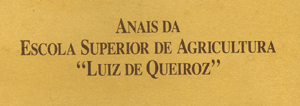An experiment was conducted at the Experimental Area of E.S.A. "Luiz de Queiroz", Piracicaba, São Paulo State, Brazil, to study the influence of growth regulators on development of strawberry (Fragaria spp.), cultivars Campinas and Monte Alegre The following products were applied: indoleacetic acid (IAA), 30 ppm; 2-(3-chlorophenoxy) propionamid acid (CPA), 75 ppm; gibberellic acid (GA3), 30 ppm; (2-chloroethyl) trimethyl ammonium chloride (CCC), 1.500 ppm; 1-2,dihydro-3,6-piridazinedione (MH), 900 ppm; and succinic acid-2,2-dimethylhidrazide (SADH), 900 ppm; the dosages being applied in three times; with one week interval starting three weeks after transplanting to field. For quantitative analysis of vegetative growth, plants for determining foliar area and dry matter production, were picked up each 14 days, iniciating one week after the last application of growth regulator, and finishing when plants began to produce runners. It was concluded that: GA3. IAA and CPA induced a better growth, givingahigher above ground/root system ratio, foliar area index, dry matter production rate, solar energy conversion efficiency and runner number; CCC and SADH induced medium values of these parameters, medium growth and reasonable production; and the lowest growth indexes were obtained with MH, with reduced growth and production. Growth analysis showed that 'Campinas' has higher relative growth rate, net assimilation rate, dry matter production rate and solar energy conversion efficiency and has lower relative foliar growth rate and foliar area ratio than 'Monte Alegre', and there was no difference in foliar area index and above ground/root system ratio between both cultivars.
